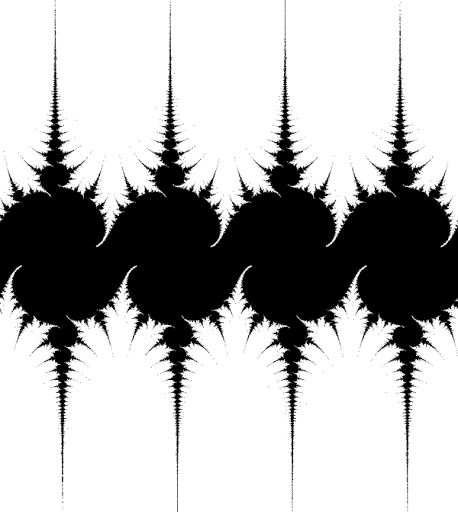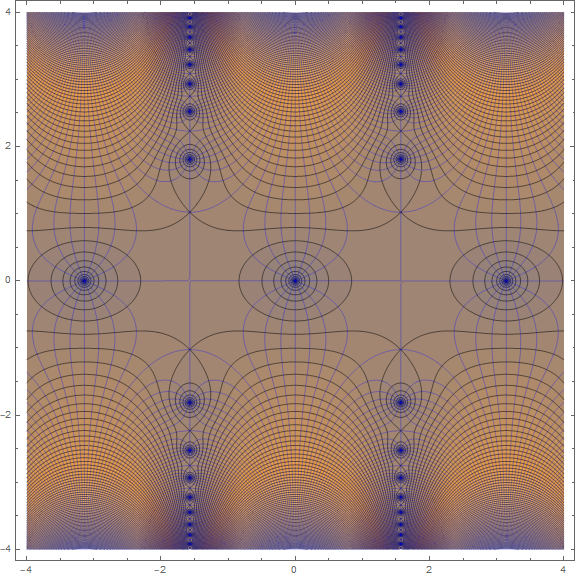Since $\sinh(x) = i\sin(i x)$ is the odd part of the exponential function, we can interpret it (for example within the framework of combinatorial species) as the (exponential) generating function for sets of odd size.
Thus, $\sinh(\sinh(x)) = -i\sin(\sin(ix))$ is the (exponential) generating function for set partitions with an odd number of parts, each of which has odd cardinality.
We can slightly refine this by interpreting $\sin(\omega\sin(x))$ as the generating function of a weighted species, giving each set partition the weight $(-1)^{n-1} w^b$, where $b$ is the number of blocks and $n$ is the size of the ground set.
Similarly, $\cosh(\sinh(x))$ is the generating function for set partitions with an even number of parts, all of which are of odd cardinality, and $\cosh(\cosh(x)-1)$ is the generating function for set partitions with an even number of (nonempty) parts, all of which are of even cardinality. Note however, that the coefficients of $\cos(\cos(x)-1)$ and $\cosh(\cosh(x)-1)$ are very different, whereas the coefficients of $\sin(\sin(x))$ and $\sinh(\sinh(x))$ only differ in sign.
As an aside, $\sin(\sin(\cdot))$ satisfies a nice differential equation:
$$
(f^2-1)^2 (f''' + f') - 3 (f^2-1) f f' f'' + (2f^2+1) f'^3 = 0
$$
while $\sinh(\sinh(\cdot))$ satisfies:
$$
(f^2+1)^2 (f''' - f') - 3 (f^2+1) f f' f'' + (2f^2-1) f'^3 = 0
$$



